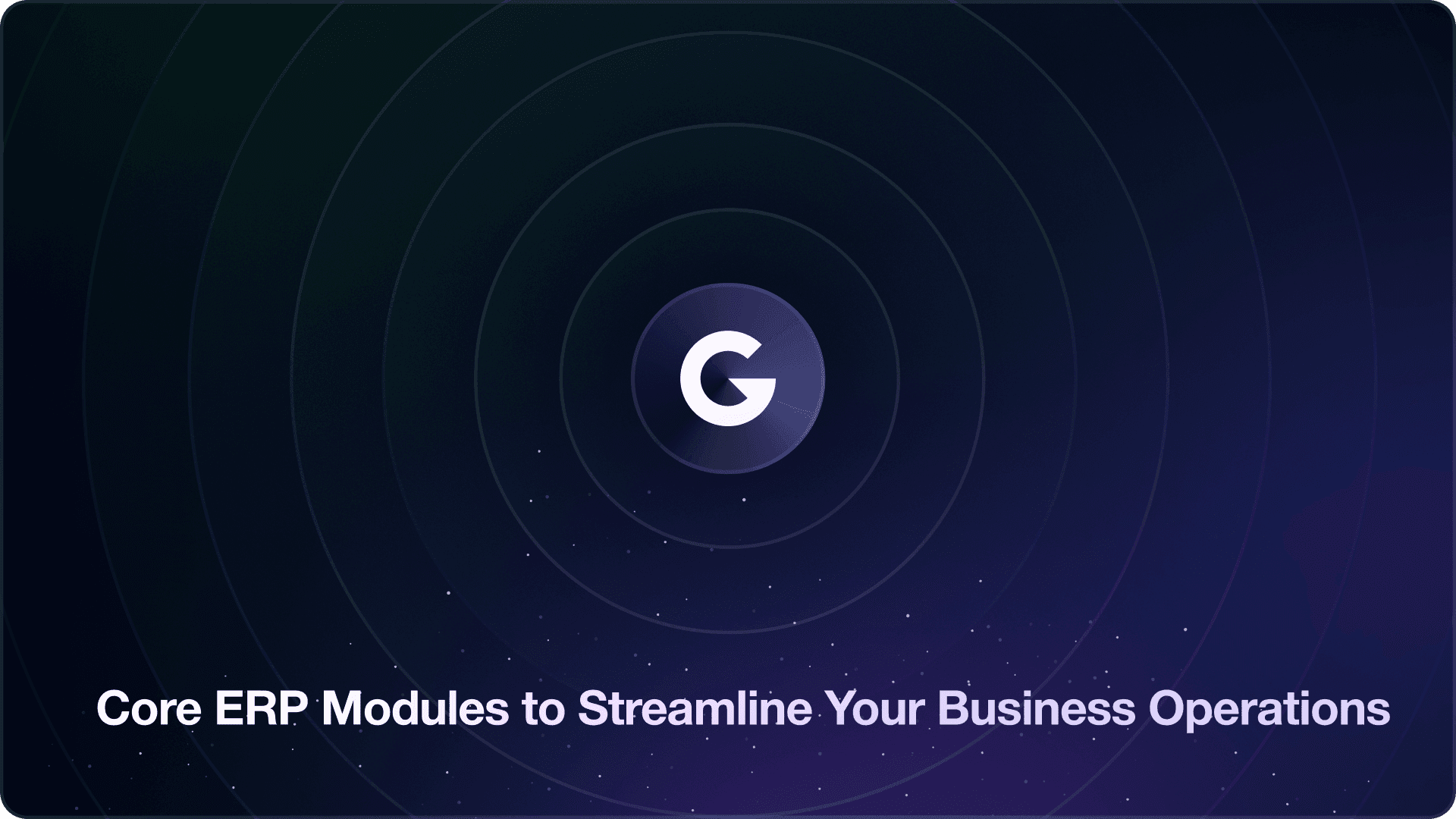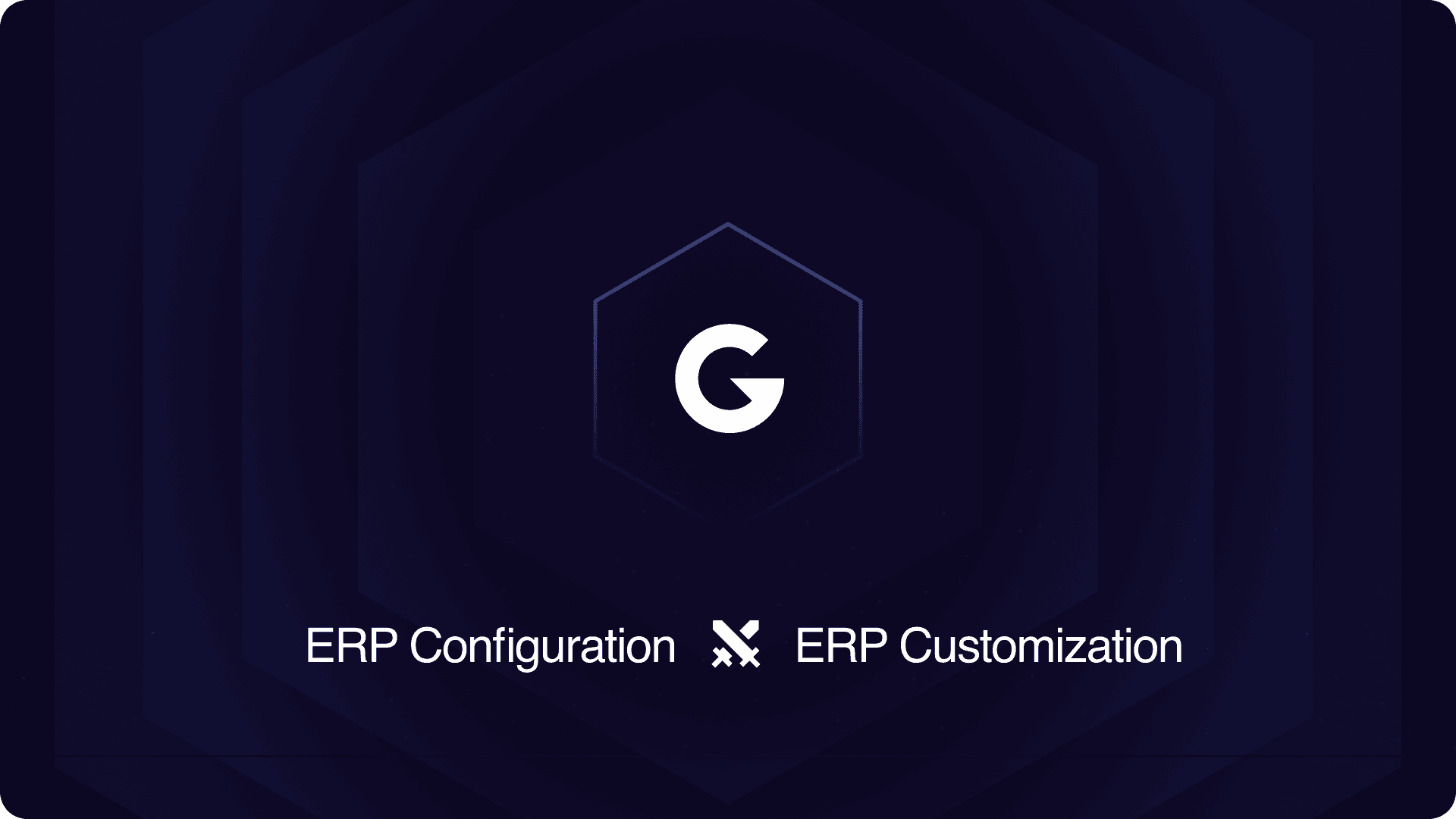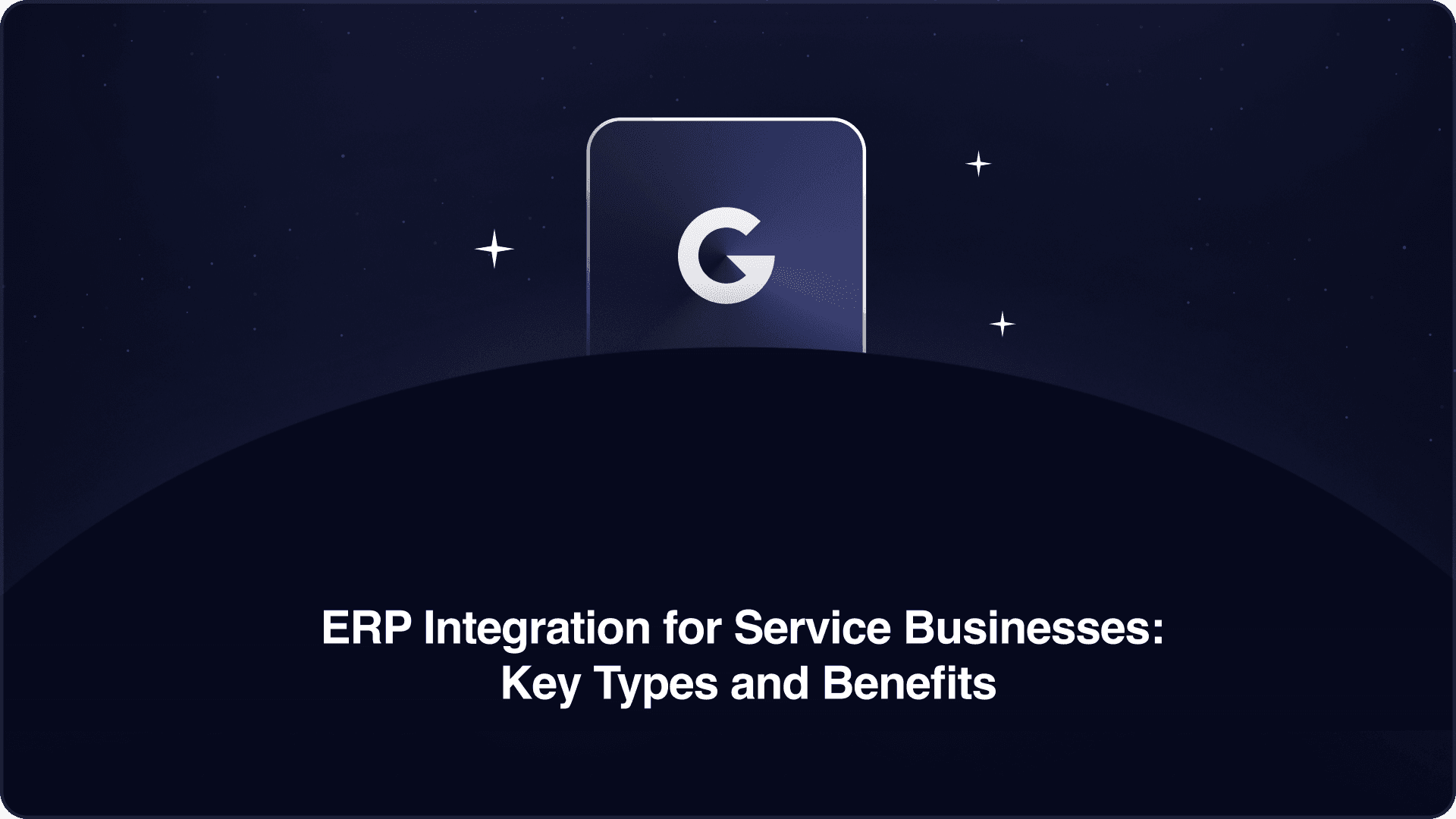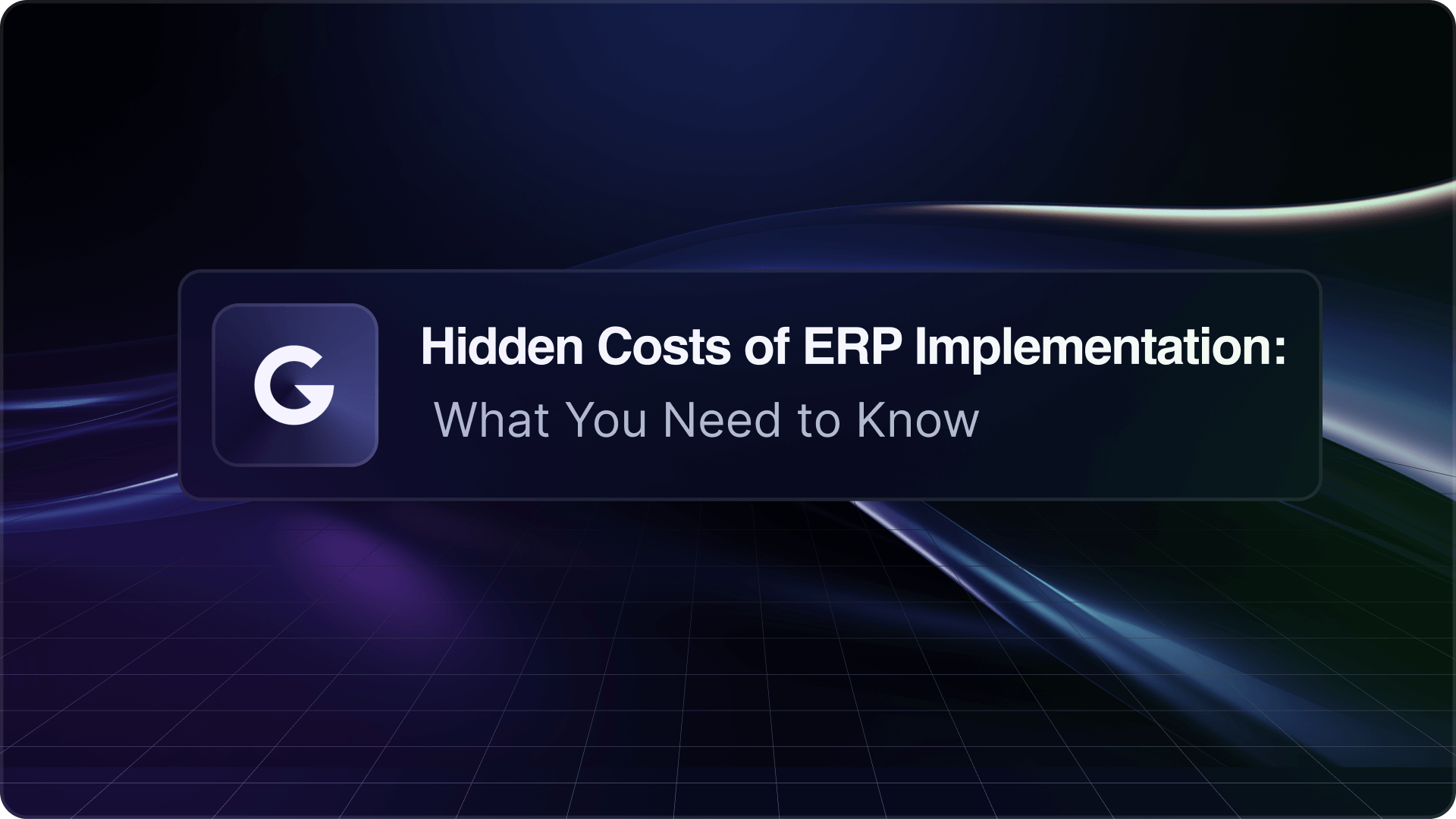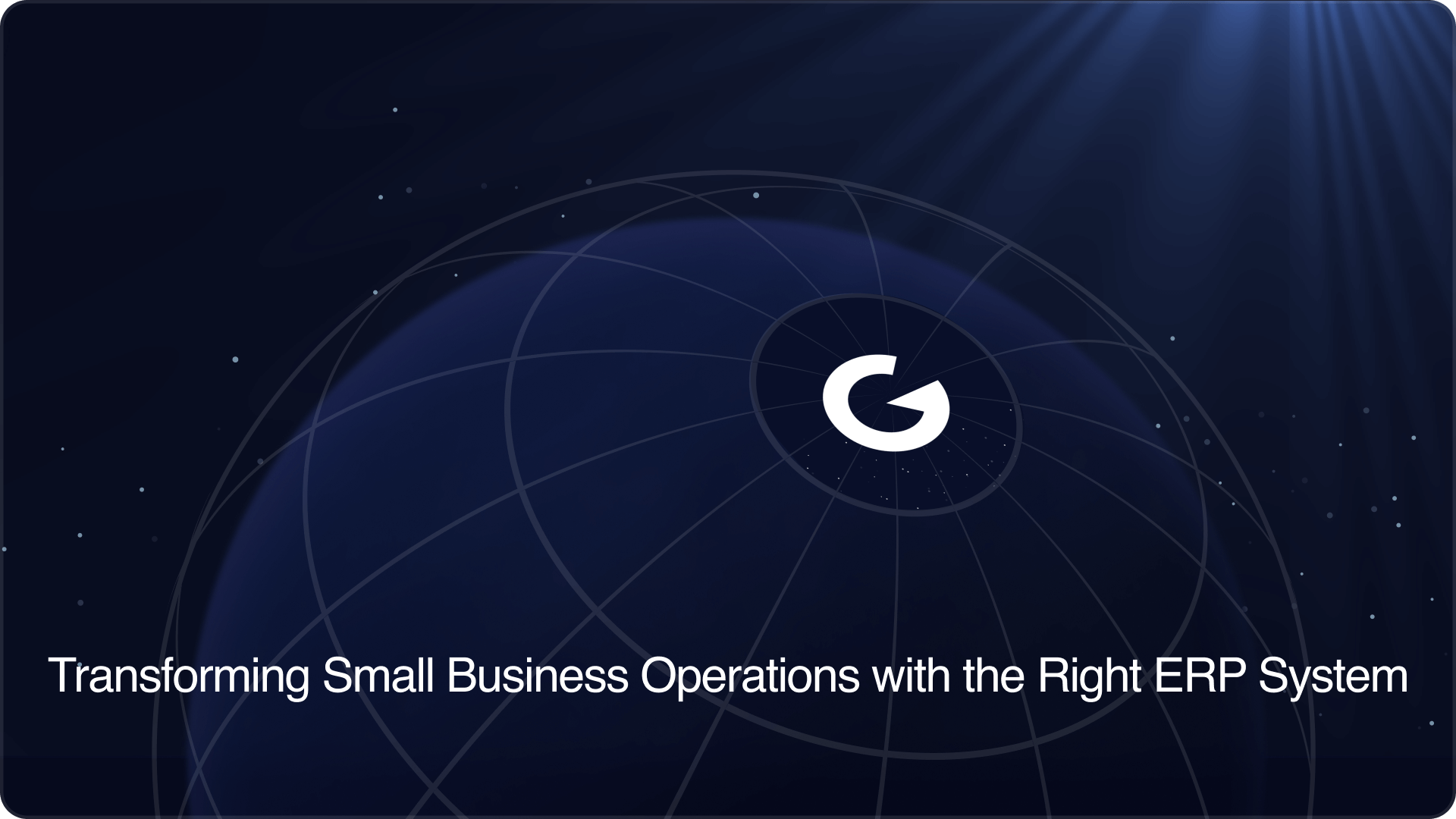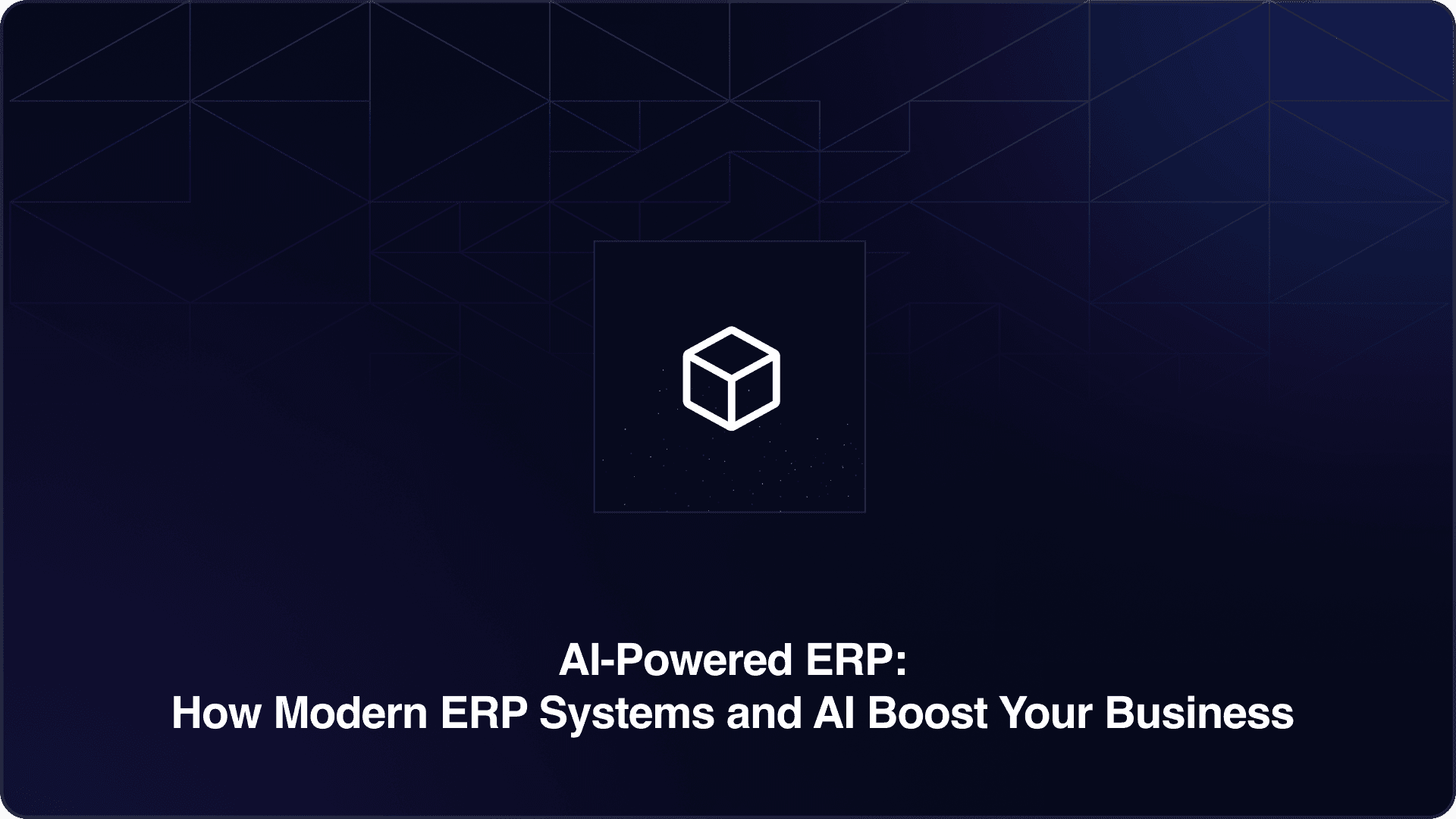ERP modules are groups of features designed with different functions and data to serve the management process of specific departments. The ERP system includes many modules, each of which focuses on a main area of business operations and is connected together.
This article will provide you with everything you need to know about ERP modules, their benefits, and how to choose the right one for your company.
What is an ERP Module?
An ERP module is a critical component of a larger ERP system that helps manage specific business functions. Think of an ERP system as a toolkit, where each module is a specialized tool designed to streamline processes such as financial planning, human resources, inventory management, and more. These modules automate repetitive tasks, integrate data across departments, and provide real-time insights, ultimately allowing your business to run more efficiently.
For example, imagine you’re managing a marketing agency. You need a way to track financials, manage client projects, and oversee employee performance all in one place. ERP modules can handle these tasks seamlessly, offering an integrated solution that removes the silos between departments. By doing so, they reduce errors, improve data accuracy, and help you make better business decisions.
Core Types of ERP Modules and Their Functions
To help you better understand the power of ERP modules, let’s dive into the most commonly used modules and explore their functionalities. Each module is tailored to enhance different aspects of business operations, ensuring that companies like yours can optimize their processes from end to end.
Depending on the needs and size of the company, the complexity and features of the ERP modules can vary. Below are the 5 core basic ERP modules you need to know:
1. Financial Management Module
The Financial Management Module is the backbone of any ERP system. It tracks your company’s financial data in real-time, allowing you to monitor cash flow, manage budgets, and generate financial reports with ease. This module is particularly essential for mid-sized service firms, as it ensures compliance with accounting standards and offers features like automated invoicing, expense tracking, and financial forecasting. By integrating your financial processes, you reduce the risk of errors and make data-driven financial decisions.
To meet the complex needs of departments, the financial accounting management module is divided into 9 sub-modules as follows:
- General accounting
- Accounts payable
- Accounts receivable
- Bank accounting
- Budget setting and control
- Fixed asset management
- Fund management
- Analytical dimension and cost center management
- Internal transactions
2. Human Resources Management (HRM) Module
The Human Resources Management Module is where detailed information about the entire business's workforce is stored, including recruitment information, labor contracts, timekeeping management, payroll calculation, and benefits administration. This module helps managers track employee working hours and productivity, as well as track the number of paid or unpaid leave days.
Data is collected and arranged by position and department in the enterprise, helping managers and leaders grasp information about the entire enterprise. The human resource module helps organizations track employee information, manage the recruitment process, maintain human resource policies effectively, thereby building a professional image for the enterprise.
For service businesses that rely on talented teams, this module is indispensable. It automates repetitive HR tasks, allowing your HR department to focus on strategic initiatives like talent acquisition and employee development.
3. Inventory and Supply Chain Management Module
For businesses that handle physical goods, the Inventory and Supply Chain Management Module keeps track of stock levels, manages supplier relationships, and ensures timely order fulfillment.
To minimize manual inventory activities, which often require a large workforce, the inventory management module in ERP can integrate many different smart inventory management technologies. For example: your business only needs to scan the barcode/QR Code once, the system will automatically display information about the goods, and connect with related software to perform quick import/export procedures, saving time for order processing.
Some of the main features of the inventory management module include:
- Planning inventory based on sales demand and production capacity
- Recording and tracking import and export activities
- Tracking the quantity and value of inventory by type and warehouse
- Classifying goods according to many criteria such as: type, size, color, value, ...
- Analyzing data to make effective inventory management decisions
- Optimize inventory volume, minimize storage costs
While this module is commonly used in manufacturing firms, service-based businesses with physical inventory (e.g., marketing agencies handling promotional materials) can also benefit from its capabilities. By automating the supply chain, you reduce lead times, minimize stockouts, and optimize your entire inventory management process.
4. Customer Relationship Management (CRM) Module
Building strong relationships with customers is important for every business. That is why implementing a Customer Relationship Management (CRM) module in an ERP system is essential.
The CRM Module within the ERP system provides a comprehensive way to manage customer relationships. It centralizes customer data, tracks interactions, and manages sales pipelines, ensuring that your sales and customer service teams have everything they need to provide exceptional service.
Especially for service firms like SaaS companies or PR agencies, this module is invaluable as it helps manage client relationships, leads, and marketing campaigns in one place.
5. Manufacturing and Production Management Module
While primarily used by manufacturing companies, the Manufacturing and Production Management Module is crucial for businesses that produce physical products. It helps manage production schedules, monitor quality control, and track raw materials throughout the manufacturing process. Service firms that offer physical product development can also leverage this module to streamline their production workflows.
In addition, the production management feature can provide error warnings and predict machine maintenance, helping businesses quickly resolve problems to ensure uninterrupted production. The main features of this module include:
- Production planning
- Material demand planning
- Production resource coordination planning
- Workshop and factory management
- Production order management
- Formula and raw material standard declaration
- Production line declaration
- Product cost calculation
ERP Modules for Service-based Businesses
Traditionally, ERP systems were designed for companies focused on product design, manufacturing, and billing. Service-oriented businesses, however, often had to customize ERP systems to distribute project information effectively across different transactions.
For service businesses, an ideal ERP system must be project-focused and flexible enough to support their unique needs, enabling them to differentiate their services. Hence, these firms often have unique feature needs compared to product-focused companies. Below are the specialized ERP modules tailored to enhance the operations of service-centric firms.
6. Sales & Marketing Module
The Sales & Marketing Module automates sales workflows, tracks leads, and manages marketing campaigns. For marketing agencies and SaaS companies, this module centralizes all sales and marketing efforts, making it easier to track campaign performance, optimize sales pipelines, and ultimately close more deals.
Furthermore, this sales management module supports the construction of standardized sales processes, identification of potential suppliers, quality assessment, price negotiation and creation of orders. Hence, business leaders can monitor all sales activities through intuitive reporting charts, thereby closely controlling the sales situation of employees in real time.
Here are some features of the sales management system that you can expect:
- Customer Relationship Management (CRM): Store information, track transaction history, classify potential customers.
- Order management: Create, track, update order status.
- Quotation management: Create, send quotations to customers.
- Distribution channel management: Track sales performance through each distribution channel.
- Sales activity management: Track schedules, report on sales staff performance.
- Sales reports: Provide reports on revenue, profit, sales performance.
7. Project & Task Management
The Project & Task Management Module is particularly useful for firms that handle multiple client projects at once. It provides tools for project planning, task assignment, time tracking, and milestone management. This module ensures that projects stay on track, budgets are managed effectively, and team members are held accountable for their tasks.
For example, you can view multiple project plans in a single view, allowing you to easily allocate resources. You can also easily assemble the right project team using search filters for roles, skills, and locations. And you can better manage your budget by standardizing how you capture costs across your entire business.
Benefits of Implementing ERP Modules in Service Businesses
1. Boosting Operational Efficiency
ERP modules automate many manual processes, allowing your team to focus on higher-value tasks. Whether it’s automating financial reports or streamlining HR management, these modules help reduce the time and effort spent on routine operations.
2. Integrating Data Across Departments
One of the most significant advantages of ERP modules is their ability to integrate data across your business. When your financial, HR, and CRM systems are connected, you get a holistic view of your operations. This integration leads to better decision-making and improved efficiency.
3. Automating Repetitive Tasks
ERP modules are designed to handle repetitive tasks like invoicing, payroll processing, and inventory management. By automating these processes, your team can focus on strategy and innovation, leading to better business outcomes.
How to Select the Right ERP Module for Your Business
In the modern business context, enterprise resource planning (ERP) systems have become indispensable tools, automating administrative activities, improving efficiency and promoting decision-making by operators based on real-time data.
However, choosing the right ERP modules for your business is an important decision that requires careful consideration of many different factors. You can refer to the following steps, you can make an informed decision that meets your company’s needs.
1. Understanding Business Needs
Start by identifying your business’s key pain points. Do you need to streamline financial management, improve customer relations, or enhance project management? Knowing your specific needs will help you choose the right ERP modules.
2. Costs & Budget Planning
You need to consider not only the initial cost of implementing the ERP modules but also the future costs such as maintenance, training and support. It is advisable to make a slightly higher initial investment in the ERP solution. This can bring significant long-term benefits and a desirable return on investment (ROI).
Once you understand your business needs, evaluate the ERP vendors that offer solutions tailored to your industry. Look for vendors that specialize in ERP solutions for service businesses, as they will better understand your unique challenges.
3. Key Features to Consider
Make sure the ERP modules you choose come with features that align with your business goals. For instance, if you run a marketing agency, prioritize CRM and project management modules that can handle your client base and campaign tracking efficiently.
4. Evaluating Vendor Solutions
Choose a reputable ERP vendor with a proven track record of delivering reliable solutions. Read their customer reviews and judge for yourself the customer experience.
Also, evaluate the vendor’s level of customer support, including response time, availability, and comprehensiveness of support services. An ERP vendor with excellent customer support will always ensure timely support in case of any issues, minimizing downtime and business disruption.
At Gravis AI, we offer tailored ERP solutions with exceptional customer support to help service businesses succeed. Get in touch with our team today to discover how Gravis AI can streamline your operations and drive business growth.
Implementation Tips for ERP Modules
Implementing ERP modules can be a complex process, but with the right preparation, it doesn’t have to be overwhelming. Here are some tips to help you integrate ERP modules smoothly into your business operations.
1. Preparing Your Business for ERP Integration
Start by ensuring your team is on board with the change. Provide them with adequate training on how to use the new ERP modules effectively. Communication is key to ensuring a smooth transition.
2. Common Challenges and How to Overcome Them
Some of the most common challenges businesses face when implementing ERP modules include resistance to change, data migration issues, and integration difficulties. Overcome these challenges by involving your team early in the process, hiring expert consultants, and setting realistic timelines for implementation.
Final Conclusion
Implementing the right ERP modules can revolutionize the way you run your business, leading to improved efficiency, better decision-making, and higher profitability. By understanding your business needs and selecting the right ERP modules, you can streamline operations across departments and set your company up for long-term success.
If you're ready to take your business to the next level, contact Gravis AI for tailored ERP solutions that support your growth and efficiency. Let us help you unlock the full potential of your business today.
